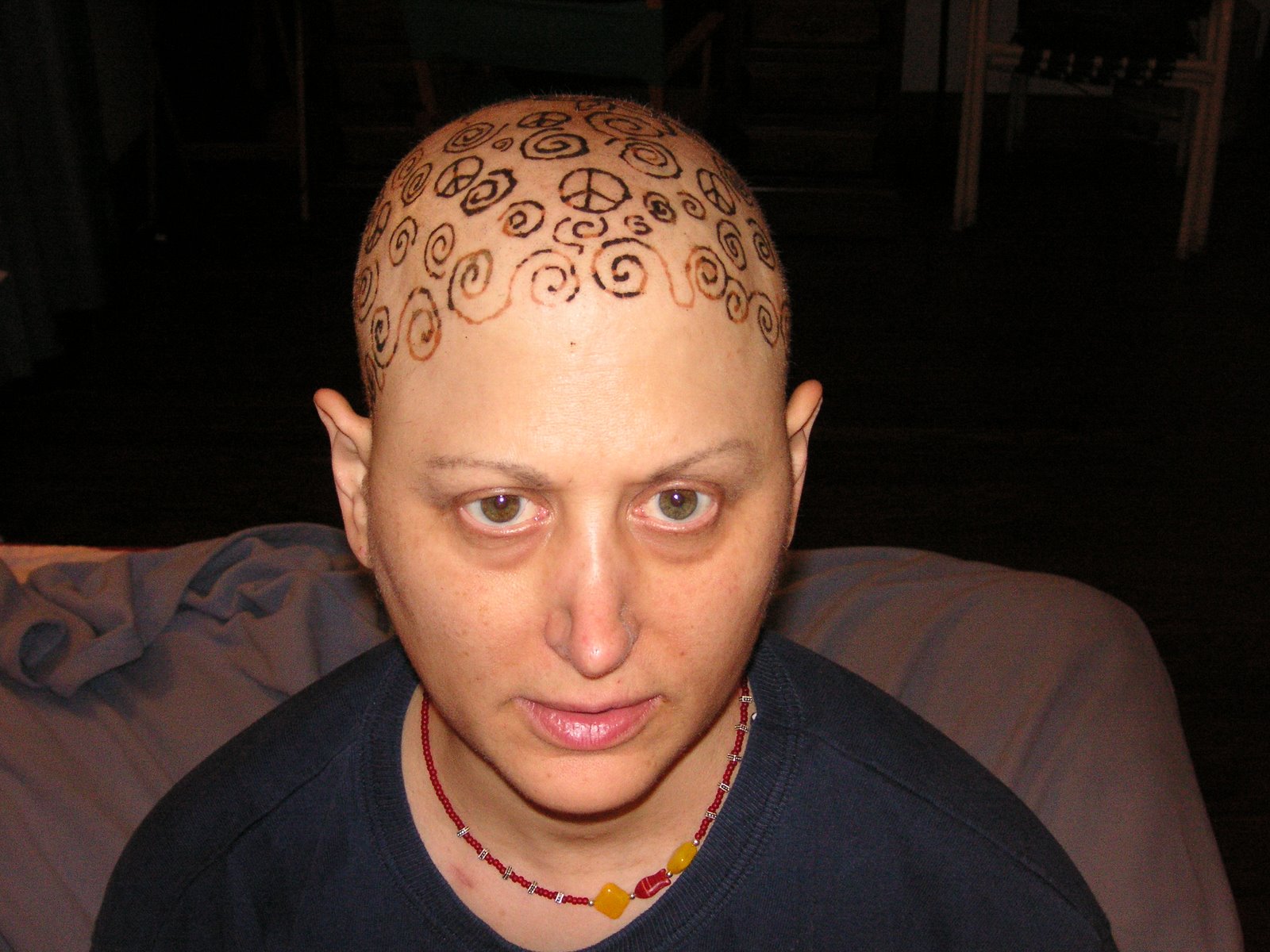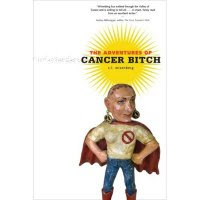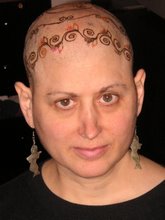I'm trying to make sense out of two articles about the effect of artificial light at night on breast cancer rates. My friend C sent me a recent piece about this from the Chronicle of Higher Education; I'll post the article as a Comment. A better piece was in Science News. In short, the researchers say that in order to reduce your risk of breast and possibly prostate cancer:
-Sleep in a dark room and at night. More than nine hours is better than less.
-Stay away from foods with linoleic acid--which is rife in processed foods that contain corn syrup, corn oil, safflower oil and cottonseed oil. Linoleic acid helps tumors grow.
-Don't work the night shift. And if you do, don't raid the vending machines with your workmates because a lot of the packaged food in there is laden with linoleic.
Except. It's not that simple.
But first, the main idea: "'Breast tumors are awake during the day, and melatonin puts them to sleep at night," according to researcher David E. Blask, quoted in Science News. Another scientist says that you don't have to be asleep for optimum melatonin production, but you have to be in a dark room. From Science News: "Melatonin forms in the pineal gland, located in the brain, and circulates in the bloodstream. Blood concentrations of the hormone rise after dark from low daytime values and usually peak in the middle of the night." Studies have shown that women who work at night are more likely to have breast cancer, hypothetically because their melatonin levels are suppressed by light at night. In addition, a Finnish study showed that women who slept more than 9 hours a night were less likely to get breast cancer. And blind women have been shown to have less breast cancer than other women, and a "high average" level of melatonin.
Melatonin also keeps cancer cells from absorbing linoleic acid, which promotes cancer growth.
So, the experts say to sleep in a dark room. Blask does this himself and also takes melatonin supplements. Another researcher cautions people about taking melatonin because it's not regulated. But as a letter writer to Science News asked: "Are you really going to tell me you aren't going to take melatonin--if you're convinced that it might lower your chances of getting cancer by as much as 50 percent--because you are afraid of impurities?"
It seems that you could trade day for night, and get your melatonin from a dark room at midday. But that's difficult. "In theory, shift workers could swap their schedules completely and maintain a natural cycle of melatonin production during their sleep hours in the day, rather than the night," the Chronicle says, paraphrasing researcher Richard G. Stevens. "But most people who work during the night revert to a more typical schedule on their days off." Stevens tells Science News pretty much the same thing. Again, a paraphrase: "On their days off, most shift workers concentrate their activities during daylight, which upsets their circadian rhythms as much as commuting across several time zones would, he says." Does this disruption affect melatonin production? Apparently. But how? Nobody says.
And what if you sleep partly in the daytime but while wearing a blindfold, as some of our best Cancer Bitches do?
Scientists have been telling us lately that we're not getting enough Vitamin D because we've become so afraid of the sun. Now we're not getting enough dark. Again, a letter-writer asks a good question: "If the daily light-dark cycle affects melatonin, is there a seasonal change in cancer rates in the Northern (and Southern) Hemispheres?" I have my own question: Is there more cancer in the tropics?
skip to main |
skip to sidebar


taramosalata & other dips; photo by Vera Szabó

cream puffs, caprese; photo by Vera Szabó

Don't try this at home. Uh, oh, we did.

L the Haircutter in Background

Finished.

design by Jennifer Berman

At medicinal baths, with testimonials from patients
One Feminist's Report on Her Breast Cancer, Beginning with Semi-diagnosis and Continuing Beyond Chemo, w/ a side of polycythemia thrown in **You don't have to be Jewish to love Levy's rye bread, and you don't have to have cancer to read Cancer Bitch *** Cancer Bitch comes to you from S.L. (Sandi) Wisenberg in Chicago
Click on photo for Cancer Bitch reading/lecture schedule
Blog Archive
-
▼
2007
(192)
-
▼
July
(15)
- I Hate Fancy Hospital
- The End of an Era
- B-watch & Komen-watch
- The Million-Dollar Brazilian
- Don't Do It Yourself or Trayf Sabbath
- Waiting for the Tsunami
- Cancer & the Corporation
- Chemo Day
- Yoga
- The Wild Girls of Genetic Counseling
- Suffering
- Pain & Pain
- Cancer: Light & Dark
- Taxol: Once More, with Feeling
- Weeding
-
▼
July
(15)
Cancer Bitch recommends these links:
- Alternet.org
- As the Tumor Turns
- Being Cancer--its on-line book club discusssed my book.
- Big Grrls DO Cry: queer life meets precarious life
- Black Gyrl Cancer Slayer
- Breast Cancer Action
- breastcancer.org
- Chemo Chicks
- Chronic (Illness) Babe
- Code Pink women's peace group
- Collaborative on Health and the Environment
- Colon cancer cowgirl
- Earth Henna
- Friends of Cancer Bitch on Facebook
- Funny Cancer shirts and mugs
- Gayle Sulik, Pink Ribbon Blues
- Geezer Sisters (tho' only written by one of them)
- Get Real About Breast Cancer (w/ pic of Breast Cancer Barbie)
- Gilda's Club
- Goodbye to Boobs (by a pre-vivor)
- Humerus Cartoons
- I got the cancer (lymphoma)
- Mamawhelming
- Organic Consumers Assn.
- Our Bodies, Our Blog
- Paula Kamen
- Planet Cancer
- Recovery on Water
- S.L. Wisenberg/Red Fish Studio
- Skin Deep: un/safe cosmetic list
- Stacey Richter's Land of Pain
- Swimming in the Trees: author Jessica Handler of Atlanta
- Tara Ison
- Terry Tempest Williams
- The Assertive Cancer Patient
- The Cancer Culture Chronicles
- The Fifty-Foot Blogger, another denizen of Fancy Hospital
- Whirled News--better than the Onion
- Women & Children First bookstore
NOTATE BENE
Everything here is as accurate as I could make it. Occasionally I've changed identifying details when writing about others.
Links to audio and video

from my Farewell to My Left Breast party

taramosalata & other dips; photo by Vera Szabó
Farewell to My Left Breast Party

cream puffs, caprese; photo by Vera Szabó
April 12, 2007--The Making of the Mohawk

Don't try this at home. Uh, oh, we did.
The Mohawk Profile

L the Haircutter in Background
The Mohawk Demure

Finished.
Summer henna-wear
design by Jennifer Berman
Life after cancer, Budapest, July 2009
At medicinal baths, with testimonials from patients

